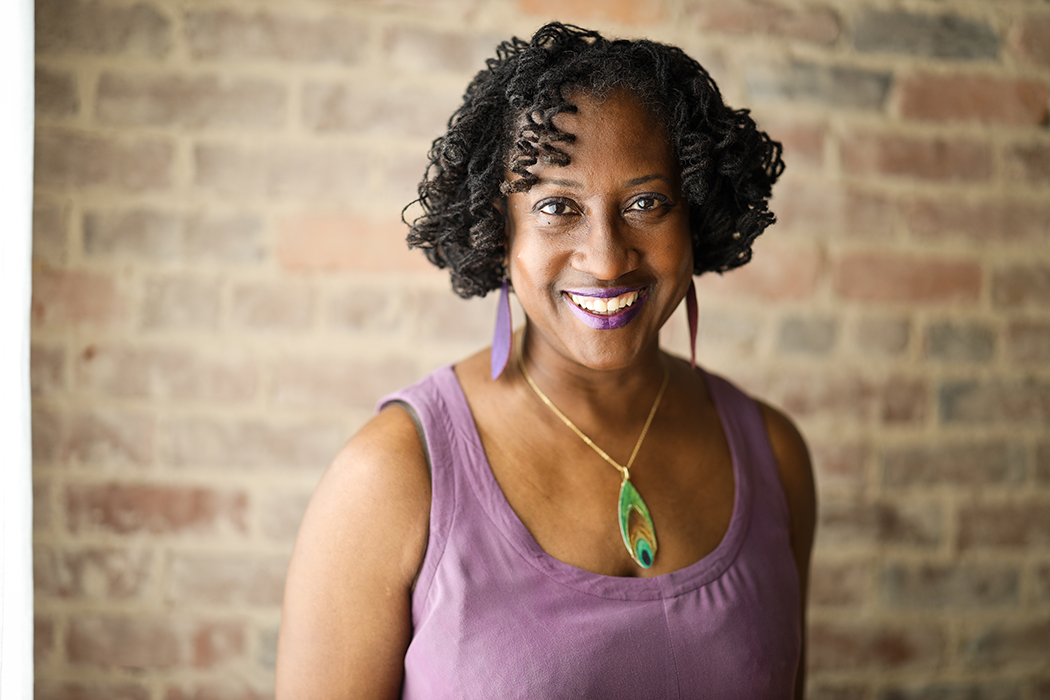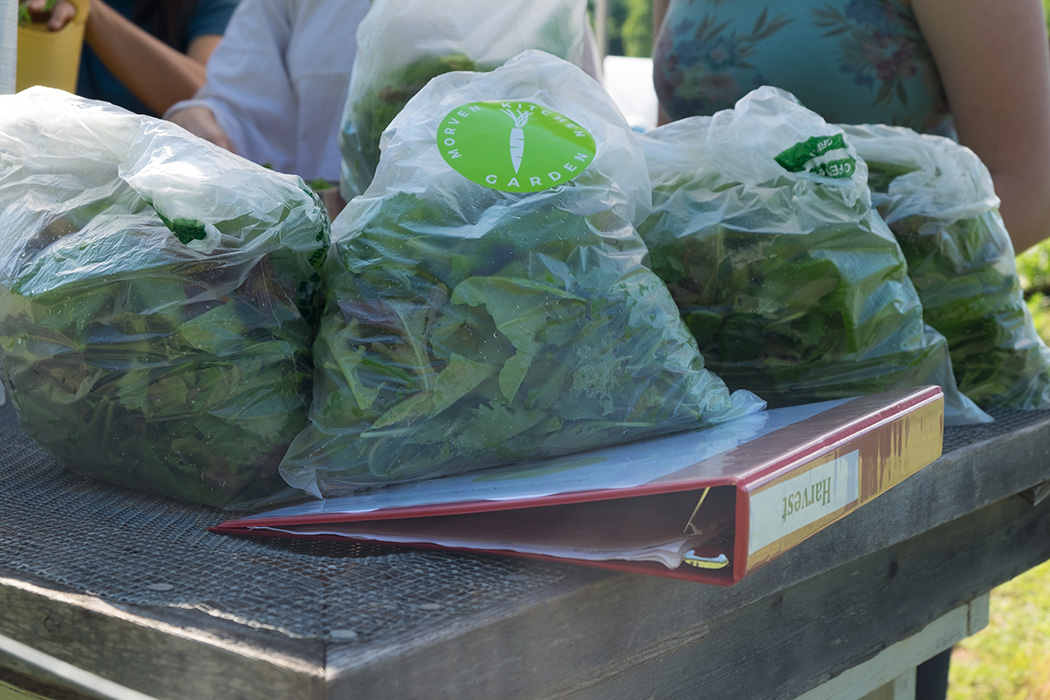By Erika Howsare
Lisa Woolfork had been sewing for years when she came to a realization—or, rather, a resolution. “I would never again trade my humanity in exchange for doing something I love,” she says. As a Black sewist, she had too often found herself in a compromising position: trying to participate in white-dominated sewing communities, but unable to “show up as my full, complete, and whole self,” as she puts it.
It was fall 2017, and Woolfork had recently had the harrowing experience of being on the ground for the deadly events of August 11 and 12 in Charlottesville. She’d been nearby when Heather Heyer died. But when she arrived at a sewing event in a different Virginia town, she wasn’t intending to discuss those things with the other, mostly white and conservative, participants.
“When I got there, people started asking me how I was, asking what it was like,” she remembers. “I would just answer, and say ‘yeah, it was hard, it was scary.’ I did not walk in to give lectures or speeches or anything. I just wanted to sew my project.”
Nonetheless, these conversations got her uninvited to the group’s next event. Woolfork realized that her presence was only accepted in this setting if she remained within very narrow boundaries. A friend told her, “‘This is what happens to Black folks when we go from being a pet to being a threat.’”
Woolfork, a professor of English at UVA, decided that she was done playing the role of minority in her creative life. Instead, she would create a new community in which Black makers stood at the center. In 2018, she began using Instagram to organize Black Women Stitch—“the sewing group where Black lives matter,” as she defines it. “Our intention is not to diversify the sewing community,” she says. “The advocacy is to create instead a space where Black women, girls, and femmes are centered in sewing.”
BWS gathered steam over the space of about a year, as Woolfork connected online with other Black women who wanted to talk sewing without leaving their identities or politics at the door. “I was looking for other Black women who had values similar to mine, including things like radical self-love, interest in Black liberation, and interest in racial justice,” Woolfork says.
The next big step was to organize an in-person event in early 2019: Beach Week, a week of sewing and togetherness in the Outer Banks. About a dozen people came, from as far as Texas and California. “We all came looking for the same thing: a sewing sisterhood,” Woolfork says.
They found a profound fellowship—“A friend described it as lightning in a bottle,” says Woolfork—and they emerged with another idea, too: a podcast. Woolfork uploaded the first episode of “Stitch Please” in September 2019. She conceived of it as a space to talk about sewing craft, Black women makers, and social justice, all at once. “There are podcasts about racial justice, womanism, feminism, all of these important practices for freedom and liberation and building a better society,” Woolfork says. “Then there’s podcasts that talk about sewing techniques, sewing celebrities, patterns, fabrics, all of these things. My podcast is the only one that is able to do both.”
Anyone who doubts that these topics belong in the same conversation might start to understand after listening to an episode or two. In one show, Woolfork discusses a controversy that arose within the general sewing community in January 2020 when the National Quilt Museum’s Block of the Month program included a free quilt block pattern that showed a pencil erasing the letters “in-” from the word “injustice.” A number of club members complained about this design, refused to participate, or altered the design with words like “Peace” or a picture of Mickey Mouse. As Woolfork puts it on the show, “It’s a revelation of the white fragility and racism that is prevalent in the sewing community.”
The mix of topics on “Stitch Please” has turned out to be a very potent brew. In one year, the podcast has seen an 1,100 percent growth in its audience, with 110,000 downloads representing 95 countries. Tobiah Mundt, also a Black maker and the co-owner of The Hive Cville, says she attributes that success to Woolfork’s authenticity. “She’s so real and she’s just herself,” Mundt says. “She’s not trying to be anything but Lisa, and she inspires us to have the courage to be ourselves and to live unapologetically.”
Shana Jefferson, a listener and occasional podcast guest who also attended the BWS Beach Week, agrees. “She’s uncompromising,” she says. “She’s been approached to have different sponsors or partnerships, and she takes very deliberate intentional time to think through those. If you’re not there to support Black women, girls, and femmes, she has no problem saying no.”
Woolfork says that sewing—an art she’s practiced for 25 years, and traces back through generations of women in her family—is a metaphor for community building. “This was an ancestral craft for African Americans,” she says. “[Community organizing] is a similar energy of transforming and creating and pulling together and binding.”

